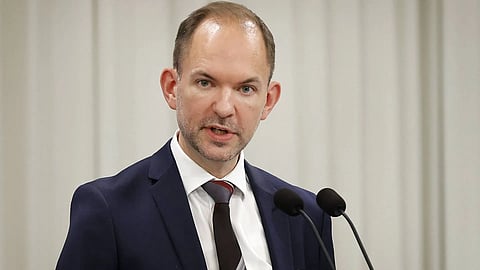
- NEWS
- the EDIT
- COMMENTARY
- BUSINESS
- LIFE
- SHOW
- ACTION
- GLOBAL GOALS
- SNAPS
- DYARYO TIRADA
- MORE

Denmark has unveiled an ambitious plan to reshape its landscape, combining efforts to combat climate change and restore natural habitats. The country aims to plant 1 billion trees and convert 10% of its farmland into forests and natural areas over the next two decades. This transformative initiative, called the Green Tripartite Plan, represents a historic shift in Denmark’s approach to land use and environmental conservation.
The Danish government, alongside the Socialist People’s Party, Conservatives, Liberal Alliance, and the Social Liberal Party, reached the agreement, which is expected to receive parliamentary approval without resistance. The plan allocates 43 billion kroner ($6.1 billion) to purchase farmland for conversion, with forests expanding by 250,000 hectares (618,000 acres) and another 140,000 hectares (346,000 acres) of low-lying, climate-damaging soils being repurposed for nature.
Officials describe the project as the most significant change to Denmark's landscape since the draining of wetlands in 1864. Jeppe Bruus, head of the Green Tripartite Ministry, emphasized the visual and ecological impact, noting that the initiative will "transform Danish nature in a way unseen in over a century."
Complementing this effort, Denmark will introduce a groundbreaking carbon tax on livestock emissions by 2030, becoming the first nation to do so. Methane emissions from cattle, pigs, and sheep will be taxed at 300 kroner ($42) per tonne of CO2 equivalent, gradually increasing to 750 kroner by 2035. However, a 60% deduction will reduce the effective tax rate to 120 kroner initially. This policy also targets nitrogen emissions, aiming to cut 13,780 tonnes annually from 2027 to protect Denmark’s coasts and fjords, which are facing severe oxygen depletion.
The Green Tripartite Plan reflects a growing recognition of agriculture’s role in climate change, with Denmark’s cultivated land, which accounts for 60% of its territory, transitioning toward sustainability. The initiative also highlights the country’s commitment to international climate goals, though it has sparked criticism from both environmental groups and right-wing populists.
Environmentalists argue the measures fall short of Denmark’s potential, while political opponents claim the plan risks job losses and economic harm without significantly reducing global emissions. The Danish People's Party (DF) and the Denmark Democrats expressed concerns about the financial burden on citizens and the impact on farmers.
Despite the mixed reactions, the plan has drawn attention for its boldness and comprehensive scope. If successful, it will not only reshape Denmark’s natural environment but also serve as a global model for integrating agriculture, conservation, and climate action.
